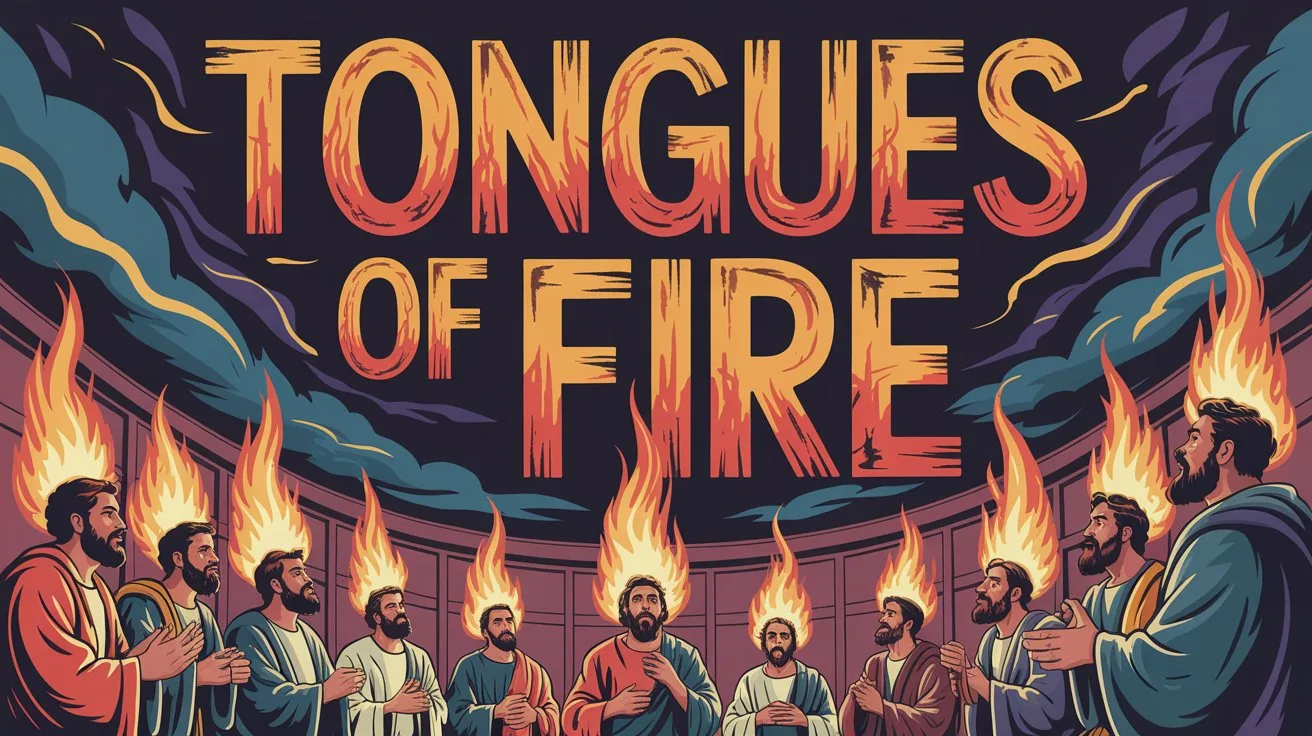The Day of Pentecost was not only the fulfillment of ancient prophecy but also a pivotal turning point in the life of the early Church. It marks the outpouring of the Holy Spirit upon the apostles, empowering them for witness and launching the spread of the Gospel into all the world.
“When the Day of Pentecost had fully come, they were all with one accord in one place.” (Acts 2:1)
The apostles were not idle; they were waiting in obedience to Jesus’ command:
“But you shall receive power when the Holy Spirit has come upon you; and you shall be witnesses to Me…” (Acts 1:8)
Now in Acts 2, we see that moment fulfilled.
What Exactly Happened?
“And suddenly there came a sound from heaven, as of a rushing mighty wind, and it filled the whole house where they were sitting.” (Acts 2:2)
“Then there appeared to them divided tongues, as of fire, and one sat upon each of them.” (Acts 2:3)
“And they were all filled with the Holy Spirit and began to speak with other tongues, as the Spirit gave them utterance.” (Acts 2:4)
This moment involves three supernatural manifestations:
A sound like a rushing mighty wind
A visible appearance of “tongues as of fire”
The apostles speaking in other languages
What Are “Tongues as of Fire”?
The key phrase:
“Then there appeared to them divided tongues, as of fire…” (Acts 2:3)
Let’s break this down:
“Appeared to them”
(This was visible, not imagined. It was a real phenomenon, though not necessarily physical fire.)
“Divided tongues” (The word tongue glōssa in Greek can mean both the physical organ and languages. These “tongues” were separate, appearing over each individual, emphasizing personal empowerment.)
“As of fire” (The phrase “as of fire” signals simile. Luke does not say literal fire appeared, but that it looked like fire. The Greek phrase hōsei pyros is not to be read literally, but representationally. It looked like fire, moved like fire, but wasn’t fire consuming their heads.)
This is the same kind of language used in describing the Holy Spirit descending like a dove on Jesus (Matthew 3:16)—not that He was a dove, but appeared in a similar form.
Why Fire?
Throughout Scripture, fire represents:
God’s presence (Exodus 3:2: the burning bush)
God’s purity (Malachi 3:2: refiner’s fire)
God’s judgment (Hebrews 12:29: our God is a consuming fire)
God’s approval (Leviticus 9:24: fire from heaven consumes offering)
Here, the fire is symbolic of the Holy Spirit’s purity, presence, and power. The fire doesn’t destroy; it ignites. It empowers the apostles to become witnesses with boldness and clarity.
Do We See This Imagery Elsewhere?
Yes. The prophets and psalms frequently use fire imagery to describe divine speech or spiritual action.
“Is not My word like fire?” says the Lord, “And like a hammer that breaks the rock in pieces?” (Jeremiah 23:29)
“The voice of the Lord divides the flames of fire.” (Psalm 29:7)
“I will make My words in your mouth fire, and this people wood, and it shall devour them.” (Jeremiah 5:14)
This fire is not literal, but it is real; symbolic of God’s holy power being spoken and demons/”>demonstrated through His people. In the New Testament, Jesus said:
“I came to send fire on the earth, and how I wish it were already kindled!” (Luke 12:49)
Here again, the fire is spiritual: a force that would purify, divide, and ignite change through the coming Gospel and the work of the Holy Spirit.
What Was the Result?
“And they were all filled with the Holy Spirit and began to speak with other tongues, as the Spirit gave them utterance.” (Acts 2:4)
These were real languages (Acts 2:6–8), understood by the multitudes gathered from different nations. The Spirit used speech as a sign, not babble, but intelligible testimony of the mighty works of God.
My Final Thoughts
The “tongues as of fire” on the Day of Pentecost were visible signs of the personal and powerful outpouring of the Holy Spirit. They were not literal flames, but visible manifestations like fire: representing God’s presence, purity, and empowering grace. The Holy Spirit came not as a silent force, but as wind to move, fire to purify, and speech to proclaim. And just as in Acts 2, when the Spirit fills His people today, the result is bold witness, clear proclamation, and supernatural power to glorify Christ.
Let us not seek fire for sensation, but for sanctification and proclamation. The fire of Pentecost still burns, not in spectacle, but in souls set ablaze by the Spirit of the living God.





 Get the book that teaches you how to evangelize and disarm doctrines from every single major cult group today.
Get the book that teaches you how to evangelize and disarm doctrines from every single major cult group today.